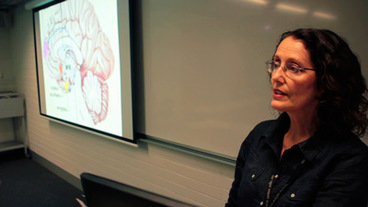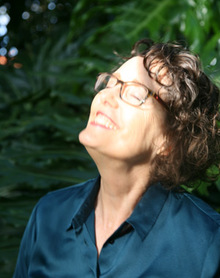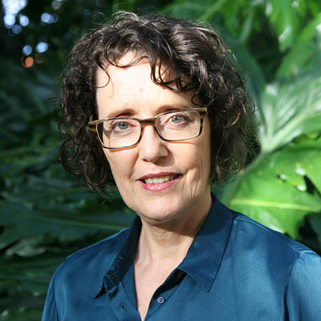About
The Contemplative Academy and Dr Morgan
Vision
The contemplative academy envisions a humanistic educational system grounded in a contemplative approach to the whole student and teacher that honors and engages their first- second- and third-person experience.
The contemplative academy envisions a humanistic educational system grounded in a contemplative approach to the whole student and teacher that honors and engages their first- second- and third-person experience.
Mission
The Contemplative Academy is committed to supporting the development of contemplative studies to help ameliorate the lack of meaning and ethical focus, chronic stress and anxiety, time poverty, and fragmented attention that many students and teachers suffer. To do this it provides research, training and support to institutions and individuals in contemplative education and studies. The contemplative academy’s mission, to offer support, research and training in this emerging field, is grounded in contemplative praxis combining rigorous theoretical and applied research. In the development of this praxis foundation it takes a holistic and interdisciplinary approach founded on experience and insight from contemplative practice. In addition it draws from contemplative sciences such as neuroscience and meditation research, which it combines with emerging research findings in the contemplative arts and humanities.
The Contemplative Academy is committed to supporting the development of contemplative studies to help ameliorate the lack of meaning and ethical focus, chronic stress and anxiety, time poverty, and fragmented attention that many students and teachers suffer. To do this it provides research, training and support to institutions and individuals in contemplative education and studies. The contemplative academy’s mission, to offer support, research and training in this emerging field, is grounded in contemplative praxis combining rigorous theoretical and applied research. In the development of this praxis foundation it takes a holistic and interdisciplinary approach founded on experience and insight from contemplative practice. In addition it draws from contemplative sciences such as neuroscience and meditation research, which it combines with emerging research findings in the contemplative arts and humanities.
The Contemplative Academy Website:
Provides an overview of Contemplative Education and the services I offer to help support individuals and institutions interested in engaging what I believe to be the most important innovation in education in recent times.
There are two central reasons for the exponential growth of Contemplative Education:
a.) It helps remediate the increasing levels of stress, anxiety and depression, the time poverty, and constant partial or fragmented attention that students and educators are battling; b.) It supports the development of prosociality, interpersonal and emotional intelligence; soft skills increasingly sought by employers who require graduates with the sophisticated communication skills crucial in the navigation of global business networks.
Contemplative Education is a humanistic and holistic approach to education that engages contemplative philosophy, theory, and a wide range of contemplative practices, such as meditation and yoga, in all educational settings. By doing this it not only offers powerful tools for stress and anxiety reduction but reintroduces the foundational stage of first-person or subjective learning to education.
I became aware of these benefits through my own contemplative practice which began in 1996, with Yoga and Buddhism. In an effort to share these valuable practices I included them in community art classes that I developed and facilitated in a range of rehabilitation centers and community development settings. Most recently through the course of my PhD, I conducted in-depth research into contemplative consciousness in tertiary education. After receiving my PhD in 2013 I have integrated contemplative pedagogy in a number of courses at universities in Sydney, lectured widely on contemplative education, law, ethics and art, and published in contemplative studies.
I bring this experience to the Contemplative Academy where I provide mentoring, research, teaching, contemplative curricula, and the development of a contemplative orientation in institutions. This will look different for every institution so please contact me to discuss your specific needs, and review the different pages of the website for additional information.
Provides an overview of Contemplative Education and the services I offer to help support individuals and institutions interested in engaging what I believe to be the most important innovation in education in recent times.
There are two central reasons for the exponential growth of Contemplative Education:
a.) It helps remediate the increasing levels of stress, anxiety and depression, the time poverty, and constant partial or fragmented attention that students and educators are battling; b.) It supports the development of prosociality, interpersonal and emotional intelligence; soft skills increasingly sought by employers who require graduates with the sophisticated communication skills crucial in the navigation of global business networks.
Contemplative Education is a humanistic and holistic approach to education that engages contemplative philosophy, theory, and a wide range of contemplative practices, such as meditation and yoga, in all educational settings. By doing this it not only offers powerful tools for stress and anxiety reduction but reintroduces the foundational stage of first-person or subjective learning to education.
I became aware of these benefits through my own contemplative practice which began in 1996, with Yoga and Buddhism. In an effort to share these valuable practices I included them in community art classes that I developed and facilitated in a range of rehabilitation centers and community development settings. Most recently through the course of my PhD, I conducted in-depth research into contemplative consciousness in tertiary education. After receiving my PhD in 2013 I have integrated contemplative pedagogy in a number of courses at universities in Sydney, lectured widely on contemplative education, law, ethics and art, and published in contemplative studies.
I bring this experience to the Contemplative Academy where I provide mentoring, research, teaching, contemplative curricula, and the development of a contemplative orientation in institutions. This will look different for every institution so please contact me to discuss your specific needs, and review the different pages of the website for additional information.
ABOUT ME
|
My interest in contemplation grew as I observed its benefits in my own life and those of the individuals I worked with in drug and alcohol rehabilitation centers.
|
The greatest influences in my life have been my parents who in their different ways fought for social justice, the small farm by the sea where we lived, growing up with my son Alexander and my fascination with the forces underlying Nature that I see most clearly displayed in its patterns. These influences and the contemplative practice I began in 1996 have impacted the three stages of my career: as a fine and commercial artist, a community artist and community developer, and most recently as an academic, where from 2007 until the present I have taught on a range of courses and researched the emerging area of contemplative education. I bring all of these experiences to my work in the contemplative academy.
My curiosity about the positive impacts of contemplative practice began in the early 1990s with arts experiments in trance video. In conjunction with the Otago School of Medicine (Wellington) I tested abstract video I made using rhythm and color set at specific rates to induce trance and the opposite. We had positive results suggesting that the videos designed for trance and relaxation did help participants move into alpha states (9-13 Hz) of relaxation and contemplation. My interest in contemplation grew as I observed its benefits in my own life and in the lives of the individuals I worked with from 1999 - 2006 who were recovering from drug and alcohol dependence and mental ill health. After completing a community development contract in 2007 (where I used contemplative arts) in Papua New Guinea, I was awarded an Australian Post Graduate Award (APA) to complete an interdisciplinary philosophical PhD at the University of New South Wales (UNSW), Sydney. |
In this project, sited in contemplative education, I asked what it is about the seemingly passive activity of sitting still, drawing the awareness inwards and watching thoughts pass by, that can result in the many benefits attributed to it by the last 40 years of neuroscience, psychology and meditation research. After analysis of the 86 interviews I conducted with students and academics at 4 universities in the US I provided a 3 part answer.
Firstly, outlining a contemplative learning trajectory in 5 sections starting with 1. Participants’ return to their bodies through contemplative practice; 2. Growing awareness of the affective and somatic; 3. Enhanced awareness of first-person, subjective, or precognitive experience; 4. Flow experience; 5. For some engagement with a ground-of-being.
Firstly, outlining a contemplative learning trajectory in 5 sections starting with 1. Participants’ return to their bodies through contemplative practice; 2. Growing awareness of the affective and somatic; 3. Enhanced awareness of first-person, subjective, or precognitive experience; 4. Flow experience; 5. For some engagement with a ground-of-being.
|
Secondly, I identified 3 stages of learning that occurred across this trajectory, a pre-cognitive/pre-figurative stage followed by an intermediary phase of pre-cognitive and somatic learning and concluding in cognitive assimilation of knowledge. Thirdly, it appeared that participants’ precognitive experience was a space of learning and their attempts to describe it, in what I termed feeling languages, was important in their making of new meaning.
|
One of the central findings in my PhD was that there are three stages of learning that occurred across a 5-part contemplative trajectory. A pre-figurative, intermediary – mixing the pre-figurative and somatic, and a cognitive stage of learning
|

I was awarded the PhD at the end of 2013 and to my knowledge mine is the first of its kind in Australia. Since completing this project I have conducted contract research and teaching in contemplative education, transformative learning, contemplative ethics, contemplative law, contemplative art, social policy and mindful leadership. I have been an invited speaker at the University of Sydney, UNSW, the Australian Catholic University, Macquarie University, Wollongong University, the University of Massachusetts and the Rhode Island School of Design. In addition, I have designed and facilitated a number of workshops on contemplative studies, a symposium on contemplative education at UNSW in 2014, and was interviewed for the Spirit of Things program on ABC radio where I spoke about my understandings of contemplative education.

In early 2015 I was a contemplative fellow at the Mind and Life Institute, Massachusetts, USA,
and most recently I co-presented on ‘translating the ineffable’ or prefigurative experience
at the Meeting of Minds: Art, Science, Technology and the Brain, a part of the Marina Abramović:
In Residence Program, Sydney; co-presented on appropriate methods to engage the
precognitive through contemplation at the Center for Agency, Values and Ethics (CAVE),
Macquarie University, Sydney, and conducted a lecture/workshop on contemplative art at
UNSW’s School of Art and Design.
My publications range across topics such as the history of contemplative education, the
ground-of-being experience in contemplative education, contemplative law,
contemplative methodologies, second-person or intersubjective experience in education and
most recently contemplative practice in mathematics education. I remain fascinated by
the precognitive, subjective and somatic ways we learn and how our access to this
fundamental stage of learning is facilitated by contemplative practice.
and most recently I co-presented on ‘translating the ineffable’ or prefigurative experience
at the Meeting of Minds: Art, Science, Technology and the Brain, a part of the Marina Abramović:
In Residence Program, Sydney; co-presented on appropriate methods to engage the
precognitive through contemplation at the Center for Agency, Values and Ethics (CAVE),
Macquarie University, Sydney, and conducted a lecture/workshop on contemplative art at
UNSW’s School of Art and Design.
My publications range across topics such as the history of contemplative education, the
ground-of-being experience in contemplative education, contemplative law,
contemplative methodologies, second-person or intersubjective experience in education and
most recently contemplative practice in mathematics education. I remain fascinated by
the precognitive, subjective and somatic ways we learn and how our access to this
fundamental stage of learning is facilitated by contemplative practice.
I am committed to working in contemplative studies as a means to help ameliorate a lack of meaning and ethical focus, the chronic stress and anxiety, time poverty, fragmented attention and constant partial attention (CPA) that many of us suffer in the beyond busy lives we feel compelled to live.
| pmorgan.vitea.2016.pdf | |
| File Size: | 365 kb |
| File Type: | |



